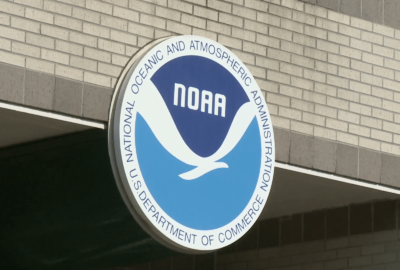
Federal employees have few incentives to report sexual harassment at work, commission finds
Though one in seven federal employees have said they've experienced sexual harassment at work in recent years, the U.S. Commission on Civil Rights believes cases...
Federal employees have little faith in the statutory protections and byzantine systems designed to help them seek redress on sexual harassment claims made at work, the U.S. Commission on Civil Rights said.
One in seven employees have experienced sexual harassment in recent years, though the actual numbers are likely much higher, the independent federal agency said recently.
Many improvements to the reporting process and statutory protections for employees must come from Congress, according to the commission, which completed a lengthy review of sexual harassment in the federal workplace last month.
Federal employees lack one “clearly lit path” for reporting sexual harassment at their agencies, Debo Adegbile, one of the commissioners, said in an interview.
According to the Equal Employment Opportunity Commission, the vast majority of agencies had ineffective anti-harassment programs between 2014 and 2016 — either because they weren’t correctly implemented or because federal organizations hadn’t effectively communicated the details of those programs to their employees.
The role of the EEOC itself is ambiguous for federal employees, the commission found. Unlike the private sector, EEOC mostly plays an advisory role for federal departments. Federal employees can’t bring their cases before the EEOC until they pursue the reporting process at their own agencies, putting public sector employees at a disadvantage compared to their private sector counterparts.
“Our system requires public employees to pursue internal agency processes before they can ever get to the point where they could go directly to the EEOC to try and revisit their complaint, appeal a final agency determination, or file a case,” Adegbile said.
Reporting sexual harassment at the agency first may also pose a conflict of interest, the commission said, because federal departments must simultaneously investigate and defend themselves.
To report sexual harassment, federal employees must file a complaint with their agency within 45 days of the incident.
“Forty-five days is a not a long time to fully understand and appreciate the context of all that’s happening, to assess the ramifications of coming forward or not coming forward in a particular case, and then to educate yourself about what the entire process is and to correctly take the right steps in the right sequence to vindicate your rights,” Adegbile said.
Navigating a confusing agency process and compiling the necessary information to report within the 45-day time limit is stressful enough, he said. But the compensatory damages for employees who do eventually report and prevail in their case provide little incentive to come forward, the commission found. Statutory caps on those damages haven’t changed since 1991.
“It makes it a very difficult market decision for outside counsel to take up your case after you’ve gone through the process, should you want to pursue a litigation or a further process with the EEOC,” Adegbile said. “The economics of the return are not really there in a very strong way.”
The stakes for federal employees who do report are often high, the commission found.
“These incidents are happening in a context where you very often have supervisory personnel who are not acquitting themselves in a way that’s consistent with federal law and are abusing their power relationship with their employees,” Adegbile said. “These factors raise the specter of retaliation.”
The stakes can be especially high for members of the Foreign Service, who often rely on their own “corridor reputations,” including word of mouth and recommendations from their peers, in order to earn promotions and new posts abroad.
“One cost of raising your hand to engage in the agency-based processes and get redress for being the victim of sexual harassment could be that you would take a knock on your so-called corridor reputation, your ability to be promoted [and] to have good opportunities,” Adegbile said.
The term may be unique to the State Department, but the concept is present throughout the government, he said.
All of these factors, the commission said, mean the vast majority of sexual harassment complaints in the federal workforce are never reported. The EEOC in 2016 estimated up to 85% of women experience sexual harassment at work at least once during their careers, though federal employees filed just 2,257 claims between fiscal 2015 and 2018.
Commission makes recommendations to Congress, agencies
The commission offered up 10 broad recommendations designed to improve the sexual harassment reporting process, among other goals.
Some recommendations are best suited for federal agencies themselves. The commission, for example, said agencies should make anti-harassment training mandatory and more useful to all employees.
Agencies should also consider implementing uniform, departmentwide penalties for disciplinary actions, as well as banning the practice of promoting, rewarding or reassigning perpetrators.
Perhaps most importantly, the commission on multiple occasions urged the federal government should embrace its role as a model employer, where sexual harassment, broadly speaking, isn’t tolerated.
Many recommendations are addressed to Congress, where Adegbile believes there is some interest from members.
EEOC, for example, should begin collecting and releasing intersectional data on sexual harassment in the federal workplace. The agency should also make sexual harassment training free to all federal agencies, the commission said. Congress, as a result, should boost funding for the EEOC to help it serve agencies more effectively. The commission also suggested Congress establish a federal ombudsman to further investigate sexual harassment claims.
In addition, the commission recommended changes to the Notification and Federal Employee Antidiscrimination and Retaliation (No FEAR) Act, including a provision that would automatically defer discrimination findings to the Office of Special Counsel. OSC, as a result, should receive additional resources to help it respond to a bigger workload, Adegbile said.
Congress should also consider setting explicit statutory protections from sexual harassment for paid and unpaid interns and federal contractors.
“Sexual harassment is a troubling phenomenon that adversely affects people in the workplace, and that your ability to seek redress for that bad conduct should not turn upon whether you’re an intern who’s paid or unpaid, or whether you’re a contractor or employee of the agency,” Adegbile said. “We don’t want to create and have and tolerate categories or classes of people who are without protection from these types of practices, because we think it’s contrary to the role of the federal government.”
Copyright © 2025 Federal News Network. All rights reserved. This website is not intended for users located within the European Economic Area.
Nicole Ogrysko is a reporter for Federal News Network focusing on the federal workforce and federal pay and benefits.
Follow @nogryskoWFED





